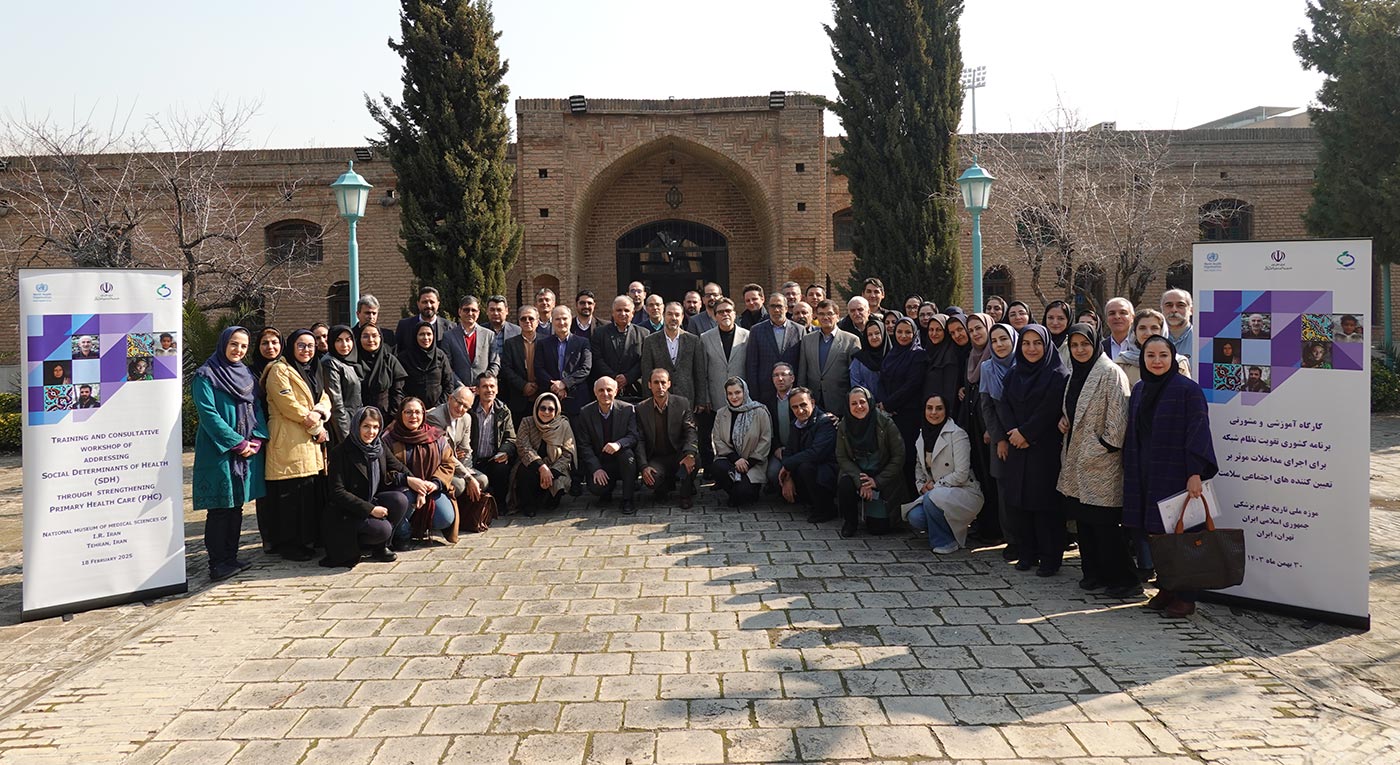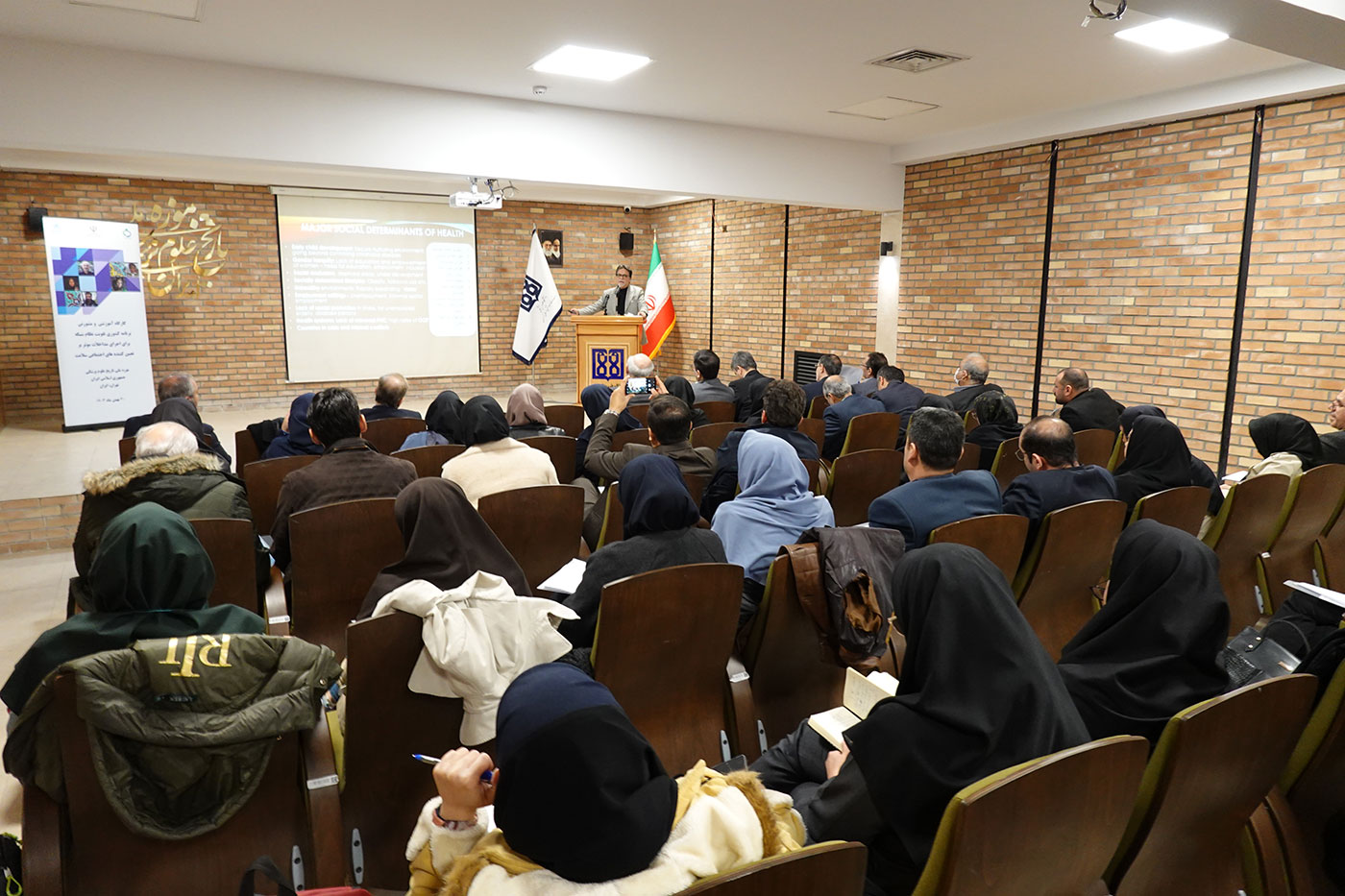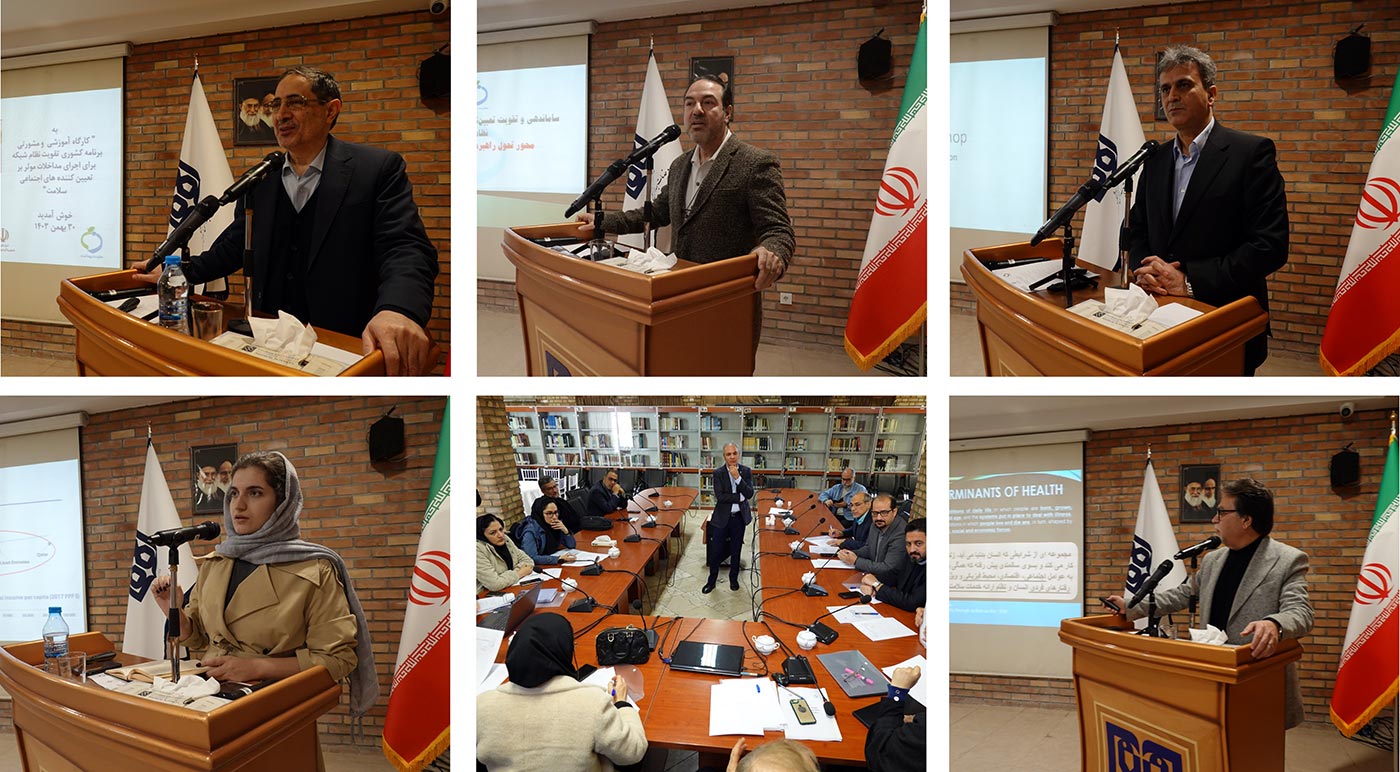 4 March 2025, Tehran, Islamic Republic of Iran – To address health inequities, the Ministry of Health and Medical Education (MoHME) and the World Health Organization (WHO) Country Office in the Islamic Republic of Iran convened a comprehensive training and consultative workshop on integrating the social determinants of health (SDH) into primary health care (PHC).
4 March 2025, Tehran, Islamic Republic of Iran – To address health inequities, the Ministry of Health and Medical Education (MoHME) and the World Health Organization (WHO) Country Office in the Islamic Republic of Iran convened a comprehensive training and consultative workshop on integrating the social determinants of health (SDH) into primary health care (PHC).
Held on 18 February at the National Museum of the History of Medical Sciences in Tehran, the event provided an opportunity for stakeholders to refine their approaches and foster collaborative initiatives to address health inequities across the nation.
The full-day, interactive workshop was designed to provide participants with practical tools and insights. It drew a diverse group of stakeholders, including medical university health deputies, focal points from the Supreme Council of Health and Food Security and dedicated teams from 7 pilot districts across 6 provinces.
Participants engaged in a series of 8 dynamic group work activities organized across 4 teams. Activities were structured to cover the entire spectrum of SDH, starting with establishing effective SDH committees and meticulously evaluating health equity indicators, then advancing to the planning, monitoring and evaluation stages and comprehensive documentation.
At the heart of the initiative is the recognition that SDH, which encompass a broad range of structural, political, cultural, economic and environmental factors, exert a profound influence on health outcomes. By focusing on these determinants, the Islamic Republic of Iran aims to strengthen intersectoral collaboration and ensure that health remains a priority across all sectors of society. This holistic approach is crucial to achieving sustainable improvements in health equity.
 The Islamic Republic of Iran has demonstrated notable progress in integrating SDH into its health system. Its commitment is exemplified by the development of a national protocol and establishing a provincial network centred around universities of medical sciences and research centres for SDH. A coaching and mentorship-based approach has been central to developing a comprehensive national operational SDH framework and toolkit and establishing the provincial network, which incorporates valuable regional recommendations and field feedback.
The Islamic Republic of Iran has demonstrated notable progress in integrating SDH into its health system. Its commitment is exemplified by the development of a national protocol and establishing a provincial network centred around universities of medical sciences and research centres for SDH. A coaching and mentorship-based approach has been central to developing a comprehensive national operational SDH framework and toolkit and establishing the provincial network, which incorporates valuable regional recommendations and field feedback.
One key achievement has been the rigorous identification of health inequity indicators, based on a systematic approach that leverages real data, defined tools and the active engagement of stakeholders and communities. These indicators are now serving as the basis for tailored action plans in all pilot areas, ensuring that interventions are targeted and effective.
During the workshop, experts and stakeholders shared insights and reaffirmed their commitment to advancing health equity. Deputy of Health at MoHME Dr Alireza Raeisi emphasized the pivotal role of community engagement, highlighting the potential of health volunteers, PHC networks, Supreme Council focal points and WHO and international partners in supporting SDH efforts.
“Our success hinges on our ability to mobilize and empower communities,” said Dr Raeisi.
 WHO Representative and Head of Mission to the Islamic Republic of Iran Dr Syed Jaffar Hussain lauded Iran’s leadership in addressing SDH through PHC since 2022 which has positioned the country as a regional pioneer.
WHO Representative and Head of Mission to the Islamic Republic of Iran Dr Syed Jaffar Hussain lauded Iran’s leadership in addressing SDH through PHC since 2022 which has positioned the country as a regional pioneer.
“Iran’s proactive approach sets a strong example for other nations,” said Dr Hussain. “WHO is committed to providing ongoing support to ensure the success of these initiatives.”
Head of the Supreme Council of Health and Food Safety Dr Seyed Hasan Emami-Razavi reiterated the Council’s unwavering commitment to strengthening governance structures to address SDH. Advisor to the Deputy of Health for International Affairs at MoHME Dr Mohammad Assaei provided a comprehensive overview of Iran’s progress, emphasizing the development of the first national protocol and the utilization of outcome-based health indicators, while head of PHC Network Management at MoHME, Dr Koorosh Etemad underscored the importance of integrating SDH into PHC systems to ensure a comprehensive and people-centred approach to health equity.
Dr Hussain reaffirmed WHO’s dedication to its ongoing partnership with MoHME and key stakeholders, emphasizing the shared goal of reducing health inequities and advancing universal health coverage.
The workshop represents an important step in translating SDH principles into tangible actions, ensuring that health is shaped not only by medical care but also by the social, economic and environmental conditions in which people live and work.


